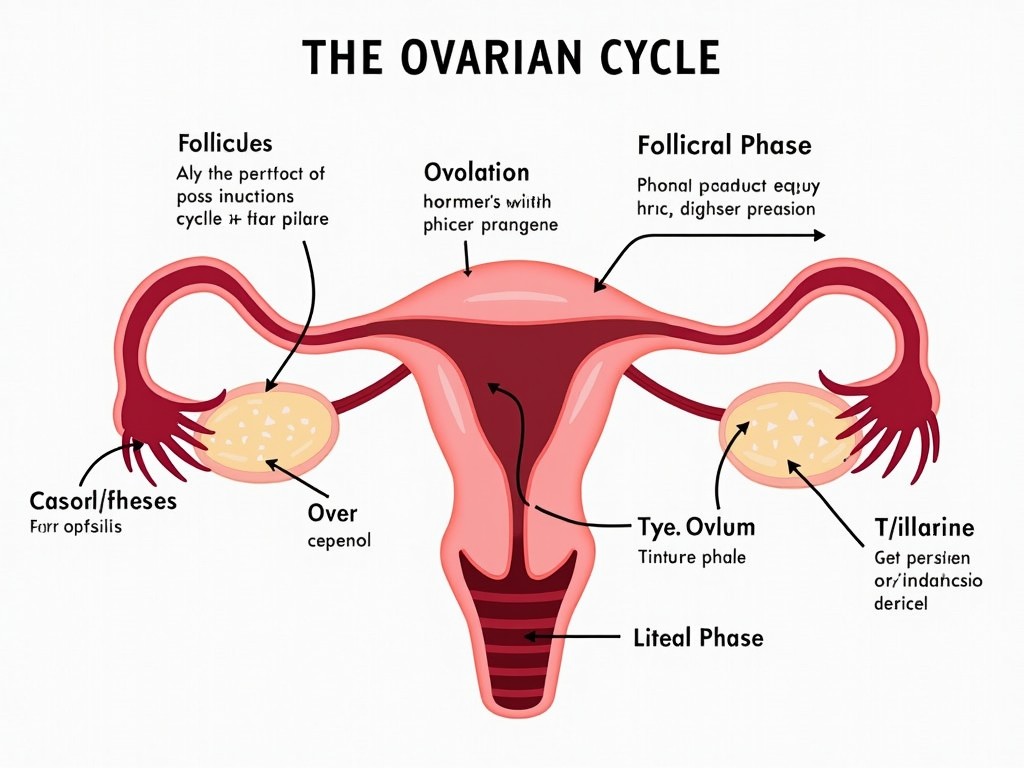A Comprehensive Guide to Fertility Drugs for PCOS
Jan. 20, 2025, 5:05 p.m.
Overview: Fertility drugs for PCOS (Polycystic Ovary Syndrome) are a common treatment to help stimulate ovulation. Understanding the options and their effects can significantly aid those looking to conceive.
Introduction
Polycystic Ovary Syndrome (PCOS) is a prevalent condition affecting many women of childbearing age. It disrupts the normal hormonal balance, leading to issues such as irregular menstrual cycles and infertility challenges. Fortunately, fertility drugs offer hope for those who wish to start a family despite PCOS. This article explores various fertility drugs, their efficacy, and personal experiences to equip you with the necessary knowledge.
What is PCOS?
PCOS is a hormonal disorder characterized by enlarged ovaries with small cysts on the outer edges. Symptoms include menstrual irregularity, excess hair growth, acne, and obesity. These symptoms can vary widely among individuals, making tailored medical approaches essential.
Why Consider Fertility Drugs?
Women with PCOS often face difficulty in conceiving due to irregular ovulation. Fertility drugs are designed to stimulate ovulation, increasing the chances of conception. Understanding which drug to use and its potential side effects can make a significant difference in treatment outcomes.

Types of Fertility Drugs for PCOS
Clomiphene Citrate (Clomid)
Clomid is often the first-line treatment for women with PCOS. It works by stimulating an increase in the amount of hormones that support the growth and release of a mature egg. This medication is typically taken orally for five days early in the menstrual cycle.
- Pros: Non-invasive, easy to take.
- Cons: May cause mood swings, bloating, and hot flashes.
- Personal Insight: Many women have found success with Clomid after a few cycles, though it might not work for everyone. Patience and open communication with a healthcare provider are crucial.
Letrozole (Femara)
Originally a breast cancer treatment, Letrozole is increasingly used for ovulation induction in PCOS patients. It has been shown to have a higher success rate in certain populations compared to Clomid.
- Pros: May be more effective than Clomid for some women.
- Cons: Possible dizziness, fatigue.
- Personal Insight: Some women prefer Letrozole due to fewer side effects compared to Clomid, though response varies by individual.

Gonadotropins
Gonadotropins are injectable fertility drugs that stimulate the ovaries directly to produce and mature eggs. They are usually considered when oral medications are not successful.
- Pros: Higher success rate in achieving pregnancy.
- Cons: Risk of multiple pregnancies and ovarian hyperstimulation syndrome (OHSS).
- Personal Insight: Many find the injection aspect daunting at first, but support from partners or family can ease the process. Monitoring by a healthcare provider is vital.
Understanding the Risks and Benefits
The journey through infertility can be emotionally taxing. While fertility drugs offer hope, understanding potential risks like OHSS or multiple pregnancies is essential. Engaging with support groups can provide comfort and guidance.

Personal Stories: Finding Hope
Hearing from those who have walked the same path can be incredibly reassuring. Many women report that finding the right fertility drug took a few attempts and several consultations.
"After trying Clomid for three cycles without success, my doctor recommended Letrozole. I was skeptical at first, but it worked on the second cycle," shares Sarah, a mother of one, who emphasizes the importance of perseverance.
Conclusion
Tackling PCOS and infertility with fertility drugs requires an understanding heart, an informed mind, and a support system. By staying informed and involved in your treatment plan, you increase your chances of success.
Recommended Readings
- Understanding PCOS: A Guide for Beginners
- Navigating Fertility Treatments: Practical Insights
- Emotional Well-being During Fertility Treatments
These resources will provide further insights and support on your journey.